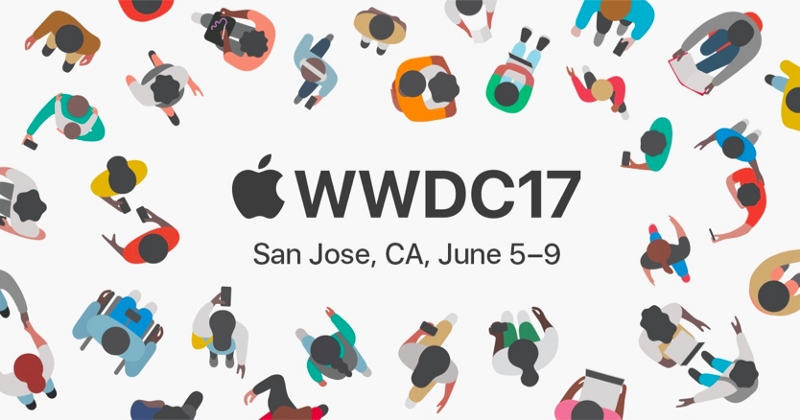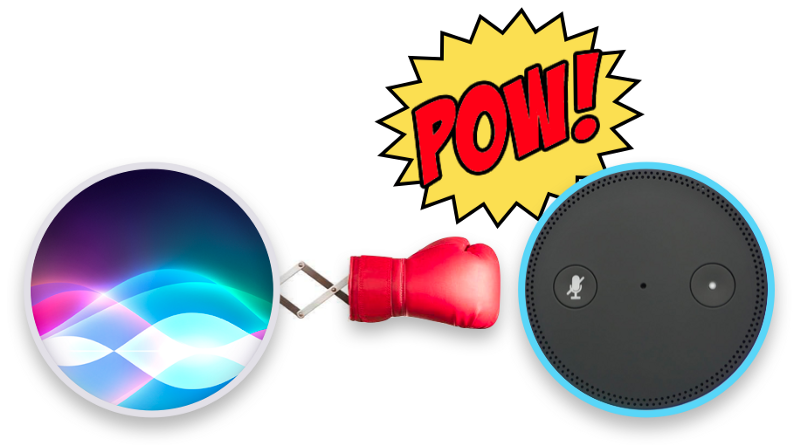With Amazon aggressively releasing new types of Echo devices like the new Echo Show, Apple seems to be getting further behind in the race for the home.
Have you ever tried to ask Siri something on your phone from across the room? It takes a couple of tries of screaming “Hey Siri” in the exact way you did it when you initially set up your phone, and then make sure you only speak between the “beep beep” or… let me guess, she doesn’t understand what you said.
Now contrast that with the awesomeness of Alexa. Sure she’s got a few of her own issues, but it’s a world of difference.
It’s frustrating because Apple should be able to delver a better experience here. Siri has has instant, seamless access to your contacts, calendar, apps, music — not to mention the fact that you probably already have multiple Apple devices in your home at any given time.
Here’s how I see it potentially going down.
Apple TV as Echo
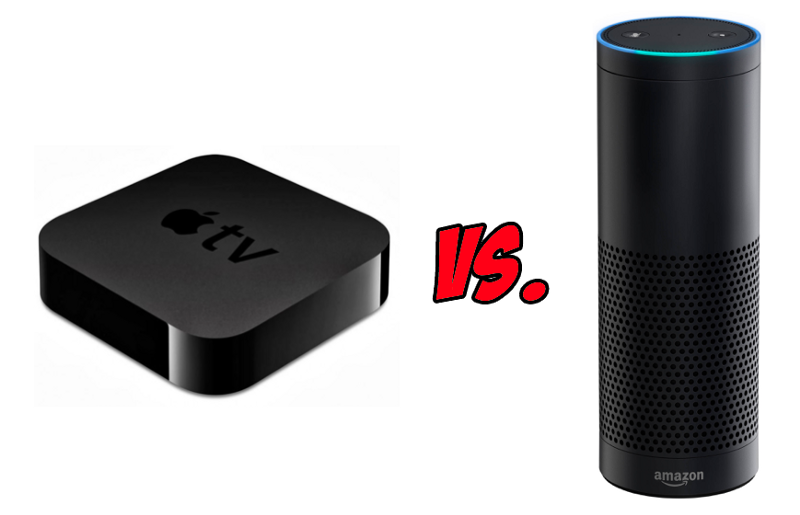
The baseline expectation is that Siri should be able to do everything Alexa can do, which includes being available whenever you need her. Amazon Echo is such a useful device because it lives permanently in your home — it’s always there. Well Apple already has a device like that: Apple TV.
I first wrote about this in 2015 in a post called This Is The Apple TV I Want. For starters, Apple TV needs a built-in microphone and speaker:
It would open up Apple TV to be a device we used even without our TVs. Siri for the home.
Also no more “Hey Siri”, no “beep beep”, no more holding down the microphone button on the Apple TV remote (which involves finding the remote) — just say “Siri” and she’s listening, ready for action. Even if the TV is off.
iPhone and Apple Watch as Echo Dot
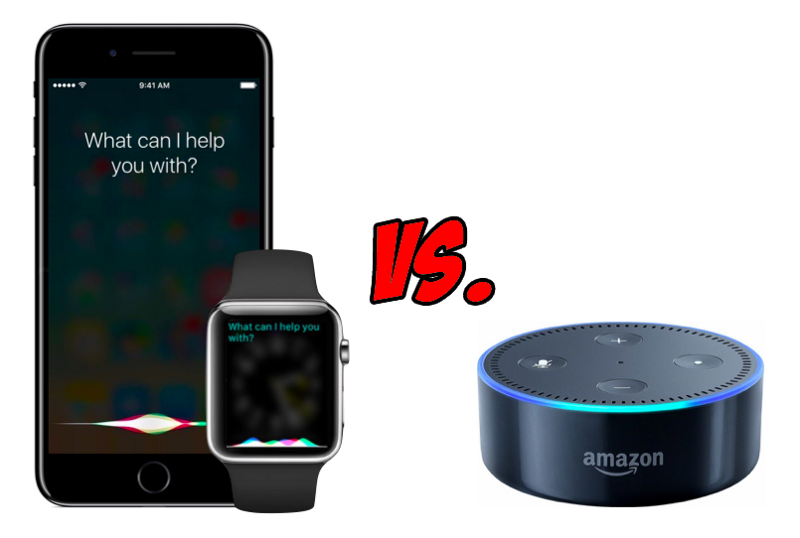
I love the idea of having an Echo Dot in every room. But buying as many devices as I have rooms is expensive and seems unnecessary since I know I won’t use most of them very often. But for that moment in the bathroom when you want to order a new toothbrush, and by the time you get to the living room you already forgot about it, you wish Alexa could just always be with you.
On the other hand, your iPhone and/or your Apple Watch are always with you, and with them comes Siri. The proximity problem has already been solved. If Siri was as good as Alexa generally, she is already with you wherever you go in your home, or anywhere for that matter. No need for a standalone device.
iPhone as Echo Look
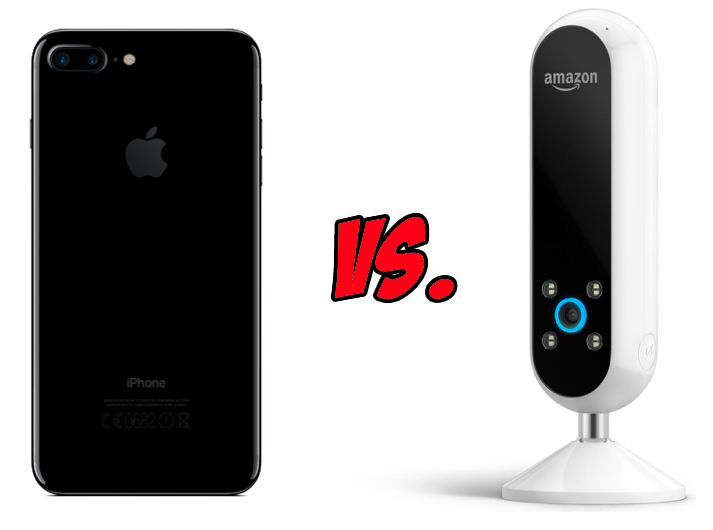
The new Echo Look is an interesting addition to the lineup with its main differentiating feature being a camera. For those who are fashion-minded and don’t mind the privacy implications, when debating between a normal Echo vs. one that has a camera and free fashion advice… you might choose the Echo Look.
Why buy a standalone device just to take selfies of your new outfit to share with your friends? If you could position your iPhone on your nightstand or dresser and talk to it as you got dressed… As will all things in this battle, it’s about the convenience of being hands free. It’s time for Siri to support camera-related tasks, including sharing with friends.
As for live fashion advice… if it turns out that there is demand for it, there could be a new Fashion app or developer framework called FashionKit for iOS although those both seem unlikely. More likely the third-party developer community would create plenty of fashion advice options on the App Store.
iPad/iPhone/Apple TV/Mac as Echo Show
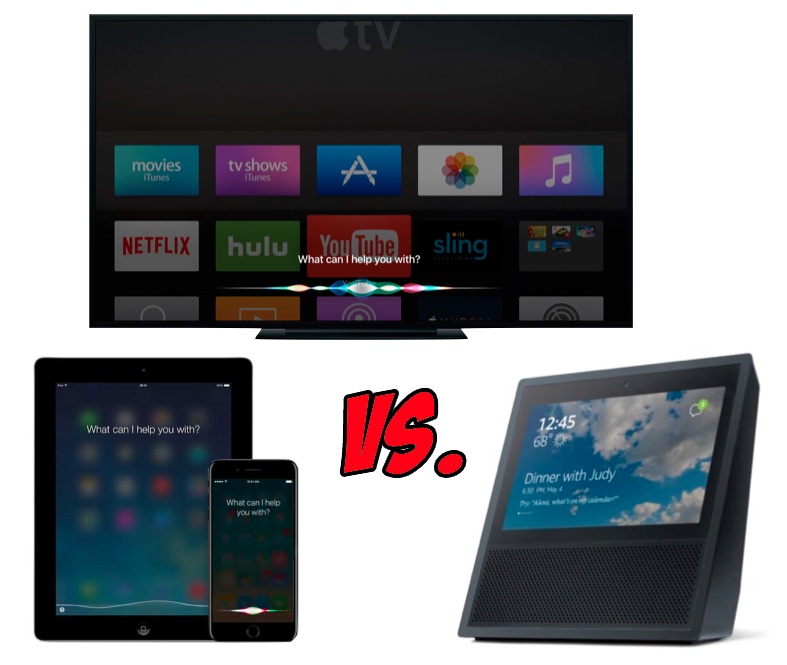
The Echo Show is fascinating. It’s basically a stationary iPad that can be used completely hands free. The intro video unveils a whole world of what can only be described as a fully fleshed out Echo OS, complete with direct competitors for FaceTime, Calendar, and more.
But again, does everyone really want to buy a $229 device for every room? If you are an Apple household, chances are that most rooms already have at least one device with a screen handy: an iPhone, iPad, TV, or Mac.
Could your idle iPad sit open on the kitchen counter instead of closed somewhere in a drawer, ready to wake up by simply saying “Siri”?
Could the TV always be on and ready? What about your Mac?
Isn’t this the lesson we learned with smartphones vs. tablets— that people just want to use the device that they already have with them?

Apple Home
Each Apple device has a speaker and a microphone. So as I’ve covered already, that means that anywhere you are in your house, a speaker and microphone shouldn’t be too far. Now if all those devices worked together in tandem, you could theoretically use any of them at any time for any reason, interchangeably. Whichever device is closest to you when you say “Siri” will be the one to answer, but you could keep talking to her as you walk from room to room, device to device, in one continuous conversation. Or you could instruct her to do something in another room — from the bedroom, talking to your phone, “Siri, show me the weather on the living room TV,” and as you walk downstairs and into the living room, the weather is there waiting for you on the big screen.
On top of that, other third-party IoT devices could take advantage of this new network of voice-activated microphones, speakers, and screens. Echo already has a ton of integrations, but it’s interesting to think about how new lightweight devices that could completely outsource their interfaces to Siri.
From that same 2015 post:
Having Apple TV constantly on the lookout for new devices and “inviting” them to join your home would make setup and maintenance a lot easier. Also those devices could use your TV (and speakers) as a visual and audio interface. For instance, my Nest Protect could actually talk to me through the TV, or through any other Apple device in my home… eliminating the need to have a speaker built into the device.
I wrote then that this new Apple TV should be called Apple Home. But this idea of a whole network of devices is somehow more than that.
Maybe it’s just called… Siri.
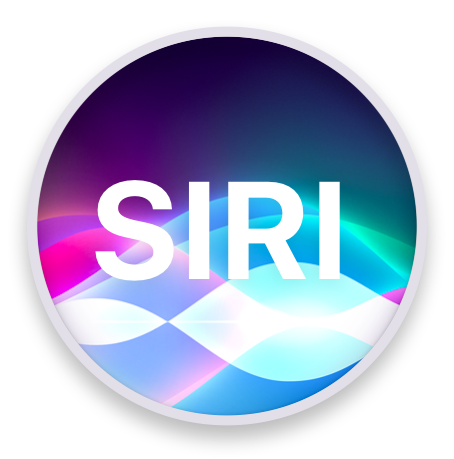
Siri at WWDC?
Let’s see what Apple has in store for us this June. There are lots of rumors about an Echo competitor, some sort of standalone iOS-ish device, potentially powered by a Beats speaker system, that uses Siri as its primary input. Having a new type of hardware device to sell makes a lot of sense for driving revenue and profit growth, which of course is the point.
But I wonder if there is a way Apple can also leverage the insane distribution they already have across the devices we already use, treating any Apple device in your home as a unified way to talk to a new and improved Siri.
